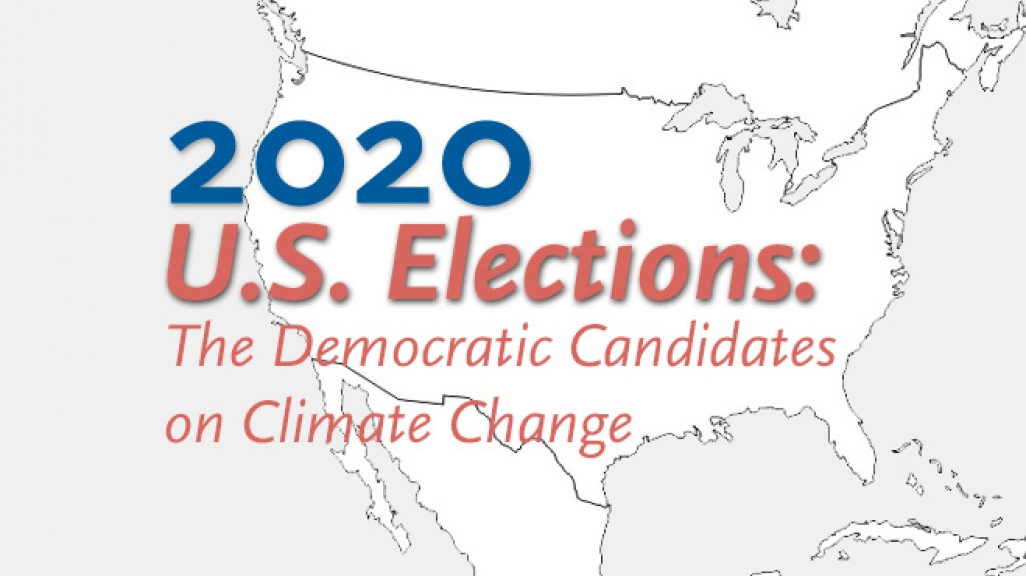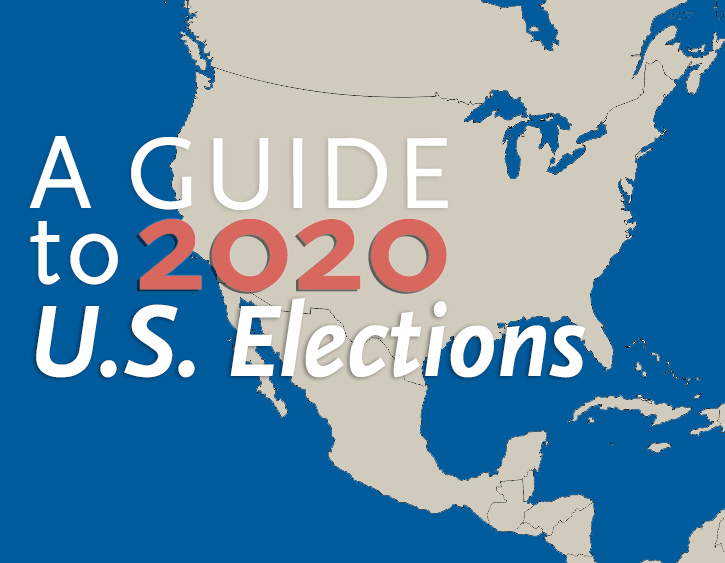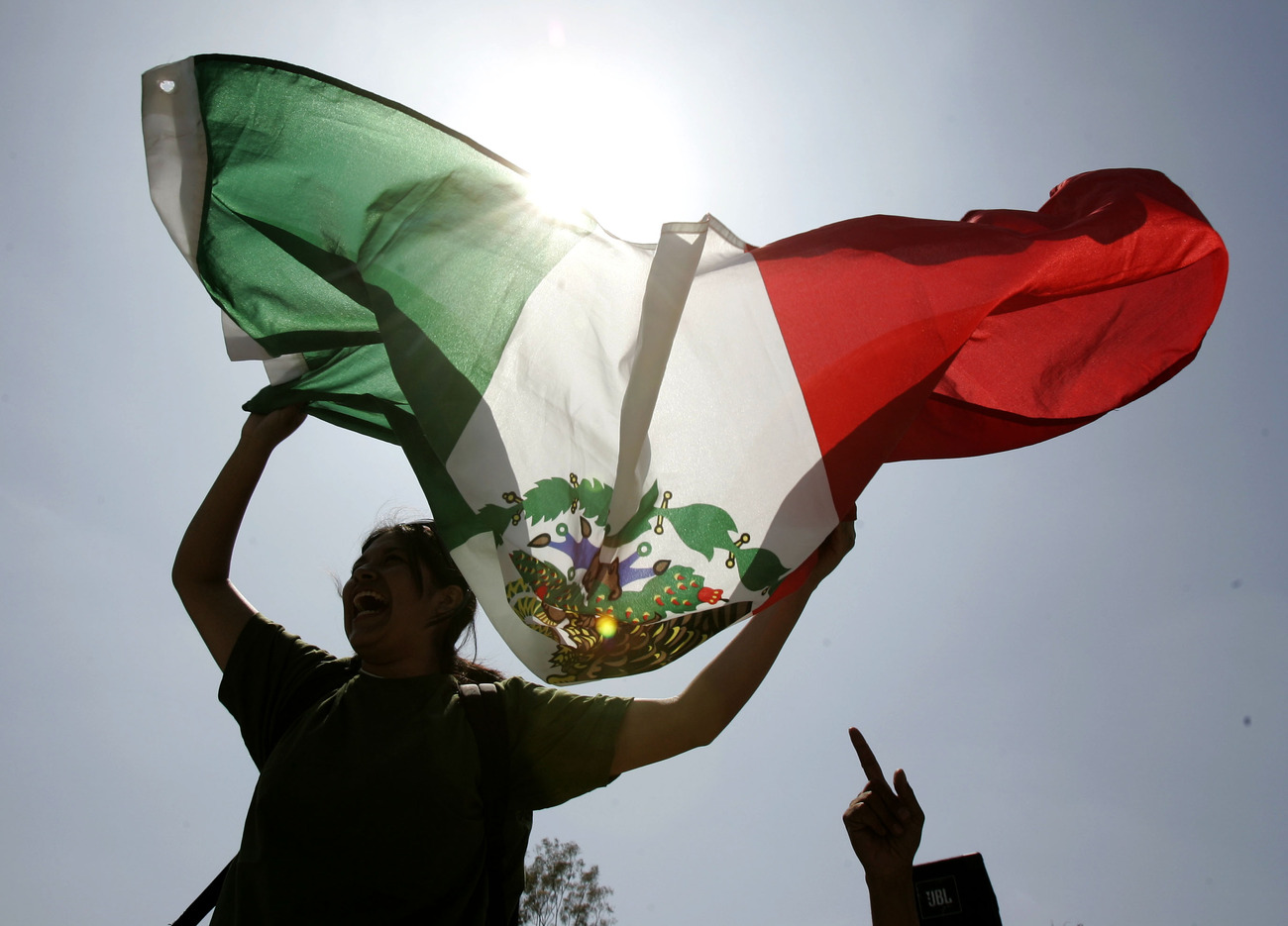U.S. 2020: The Democratic Candidates on Climate Change
U.S. 2020: The Democratic Candidates on Climate Change
From the Amazon fires to Hurricane Maria, where did the Democratic candidates stand on climate change policy, particularly as it pertains to Latin America?
The Democratic candidates recognized climate change as a pressing issue and opposed President Donald Trump’s skepticism of this transnational threat. And it’s little surprise, given that a survey taken in conjunction with the Iowa caucus found that nearly a third of respondents identified climate change as a main issue, making it the second-biggest voter concern.
When it comes to Latin America, presidential hopefuls have spoken out on issues such as Brazilian President Jair Bolsonaro’s handling of Amazon deforestation or the effects of climate related disasters like hurricanes in the Caribbean or drought in Central America. The matter of forging environmental regulations as part of trade deals also came up, with the U.S.-Mexico-Canada Agreement (USMCA) sparking debate.
In addition, the Green New Deal drew different responses from these contenders. The deal, introduced by Alexandria Ocasio-Cortez (D-NY) and Senator Edward Markey (D-MA) in February 2019, is a nonbinding proposal calling for a renewable-energy economy by 2030, and recognizes the need for international exchange of technology, expertise, and funding “with the aim of making the United States the international leader on climate action.”
- See candidate positions on other topics: immigration, security, trade, Venezuela.
- This article was originally published on February 12, 2020.
- Lea este artículo en español.
- The former vice president said his administration would rejoin the Paris Agreement and will lead an initiative for all signatories to “ramp up the ambition” of their own national climate goals by making them clear and realistic.
- In his climate plan, Biden proposes an investment strategy focused on clean energy and sustainable infrastructure to drive innovation “from Canada to Chile.”
- Per that strategy, he backs better-integrated power grids from Mexico through Central America to Colombia supplied by clean energy.
- In the Caribbean and the Northern Triangle, he says he would promote clean energy transitions and climate change adaptation related to rising sea levels, severe weather patterns like hurricanes, and continuous drought in places such as eastern Guatemala.
- Biden supports the Green New Deal.
These are positions of candidates who have dropped out of the race since this article was first published:
- Former New York City Mayor Bloomberg declared the Amazon fires an international emergency that “responsible action” can halt.
- At the UN’s September 2019 Climate Summit, Bloomberg, then a UN special envoy for climate action, thanked Latin American Presidents Iván Duque of Colombia, Sebastián Piñera of Chile, and others for their “commitment to finding an immediate and effective response to the crisis,” regarding the Amazon fires. He resigned from this post once he joined the presidential race.
- He does not support the Green New Deal, and says he advocates for a more cost-effective solution.
- Bloomberg supports rejoining the Paris Agreement.
Pete Buttigieg
- The former South Bend mayor says that climate change affects the whole planet, from hurricanes in Puerto Rico to Amazon deforestation. He said the Amazon fires are a reminder for politicians to meet “the great challenges of our time.” He expressed the need to tackle inefficient responses to natural disasters—such as Hurricanes Irma and Maria in 2017, and Michael in 2018—by boosting federal funding for volunteer groups as well as the budget for the Federal Emergency Management Agency, or FEMA.
- Buttigieg supports the Green New Deal, depending on whether he can cooperate with coal, oil, and gas workers to reach clean energy goals.
Tulsi Gabbard
- Her climate action plan does not have a specific focus on the Western Hemisphere.
- The Hawaiian congresswoman initially supported the Green New Deal, but did not cosponsor it due to what she says is vague language.
- Gabbard supports rejoining the Paris Agreement.
Amy Klobuchar
- While the Minnesota senator cosponsored the Green New Deal when it was proposed in Congress, she criticized it for not going far enough and qualified it as a “jump-start” to the climate change conversation.
- Klobuchar said she would, in her first 100 days as president, get the United States back into the Paris Agreement.
- She also called the Amazon fires a “tragedy.” She suggests that being part of Paris accords, pressuring governments, and working with non-profits and other groups globally will help combat climate change.
Deval Patrick
- The former Massachusetts governor called himself an early starter in the climate change fight, and vows to prioritize climate action on day one of his presidency.
- Patrick does not support the Green New Deal. Instead, he proposes measures like investing in clean technology and creating an “independent global organization” to track climate change action and resolve disputes.
Bernie Sanders
- The Vermont senator proposes a $16.3 trillion plan to address climate change. He points out that climate change is a top concern, giving the example of the Amazon fires.
- He has been outspoken about Bolsonaro’s actions harming the Amazon rainforest, calling the Brazilian leader a “threat to working people, minorities, journalists, and a habitable planet.”
- Sanders backs the Green New Deal, proposing to convert America into a total renewable-energy country by 2030 and becoming a carbon-free economy by 2050. He also would commit to global emissions reductions, providing $200 billion to the Green Climate Fund, and rejoining the Paris Agreement.
- Sanders pointed out the lack of environmental provisions in USMCA, “I don’t know how in 2020 you could do that.” He voted against the trade deal.
- He says he would amend the Stafford Act to ensure that the FEMA can address recovery and community rebuilding after natural disasters, citing the case of Puerto Rico, with 130,000 people leaving the island due to lack of disaster aid.
Tom Steyer
- The California businessman supports the Green New Deal and pledges that, under his leadership, the United States would seek to reach zero carbon emissions by 2045.
- He has also expressed concern about the Amazon fires, saying “we must change our relationship with the earth immediately.”
- Commenting on a Fortune article covering chronic drought in and resulting migration from Central America, Steyer said that climate policy will be a part of decisions “across the board.”
- Steyer supports rejoining the Paris Agreement.
Elizabeth Warren
- As a cosponsor for the Green New Deal, the Massachusetts senator asserts that climate change would be a top priority in her administration.
- She was vocal on the Amazon rainforest fires, urging Bolsonaro to take responsibility for the consequences of deforestation.
- Warren vowed to invest $1 trillion in vulnerable communities as president with the goal of combatting the effects of climate change in places such as Puerto Rico, saying “justice must be at the center of our response to the climate crisis.”
- In an op-ed for Foreign Affairs, she wrote that, to make progress on climate policy, “we should leverage foreign countries’ desire for access to U.S. markets as an opportunity to insist on meaningful environmental protections.”
- Warren voted in favor of USMCA, despite colleague Sanders’ concern about the trade deal’s lack of environmental provisions. But she’s made climate action proposals, including in relation to future trade deals, that would seek to protect clean energy subsidies from trade retaliation, share clean energy technology abroad, and create a border adjustment carbon tax that could be levied on countries with less stringent regulations.
- As part of her Blue New Deal to protect oceans—a proposal she seeks to promote alongside the Green New Deal—Warren plans to end offshore drilling to protect vulnerable ecosystems such as those along the Gulf Coast. On her first day in office, she says she would sign an executive order to bar new fossil fuel leases offshore and on public lands.
- Warren would rejoin the Paris Agreement as a first step toward reducing global emissions. Her plan includes the goal of cutting carbon emissions by 50 percent by 2030 and reaching zero emissions by 2050.










